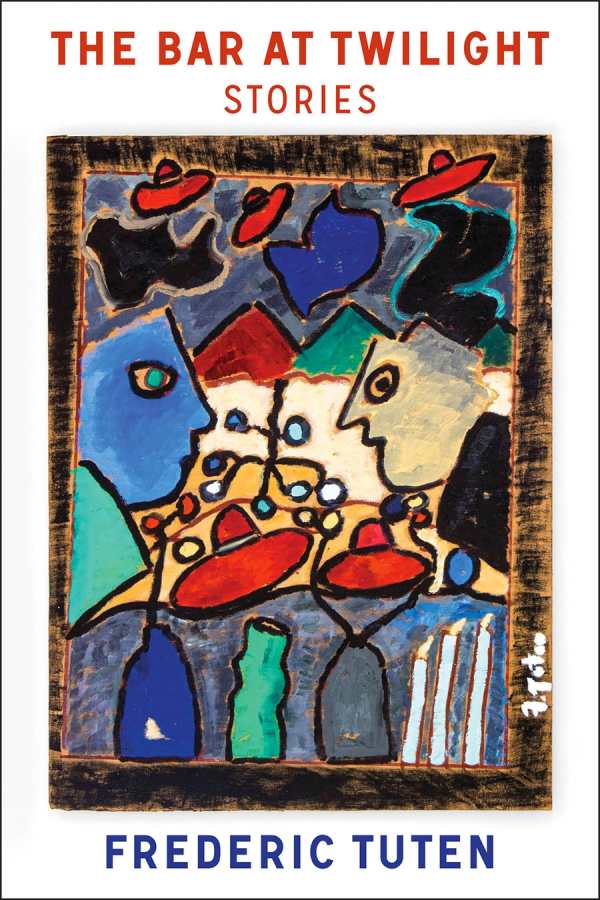It looks like you've stumbled upon a page meant to be read by our code instead of viewed directly. You're probably looking for this page.
The Bar at Twilight
Frederic Tuten dares to question the nature of art and life in the short stories of The Bar at Twilight, several of which were written to accompany gallery exhibitions.
In “Winter, 1965,” an aspiring writer is disappointed to find that his well-received story has been pulled from publication. He longs to be a published writer, and imagines interactions with potential partners from this perspective. These meanderings are tinged with melancholy and resignation.
Melancholy colors several other stories, too, in different ways: in “The Phantom Tower,” about a man’s wanderlust leading him to climb a tall tower, there is longing to know and understand the mysteries of the world. In “Allegory: A Parable,” an artist ponders the meaning of allegory during a creative block, and is deep and pensive, evoking questions of whether any art can exist as itself, or if it will always exist as “something else in addition to it.”
The book’s standout entries are “L’Odyssée” and “The Garden Party.” The former features a well-known, spinach-fueled sailor; the latter concerns a party that never actually happens. The longing that suffuses the other stories does not touch “The Garden Party.” Instead, the unexpected brightness of it, coupled with its off-kilter bent, makes it almost aware of its differences from the rest of the collection, and self-aware as a story wherein a character claims to appreciate “a disquieting note, a discordant tone.” “L’Odyssée” maintains the longing, but by using well-known characters like Popeye and Olive Oyl in new circumstances, making the theme more resonant and digestible.
And the book’s fifteen entries end with a writer. It is a coda, an essay about Tuten’s connection to books and reading as gateways.
The Bar at Twilight is a short story collection that reaches for closeness, showcasing the deep desire to connect.
Reviewed by
Dontaná McPherson-Joseph
Disclosure: This article is not an endorsement, but a review. The publisher of this book provided free copies of the book to have their book reviewed by a professional reviewer. No fee was paid by the publisher for this review. Foreword Reviews only recommends books that we love. Foreword Magazine, Inc. is disclosing this in accordance with the Federal Trade Commission’s 16 CFR, Part 255.
